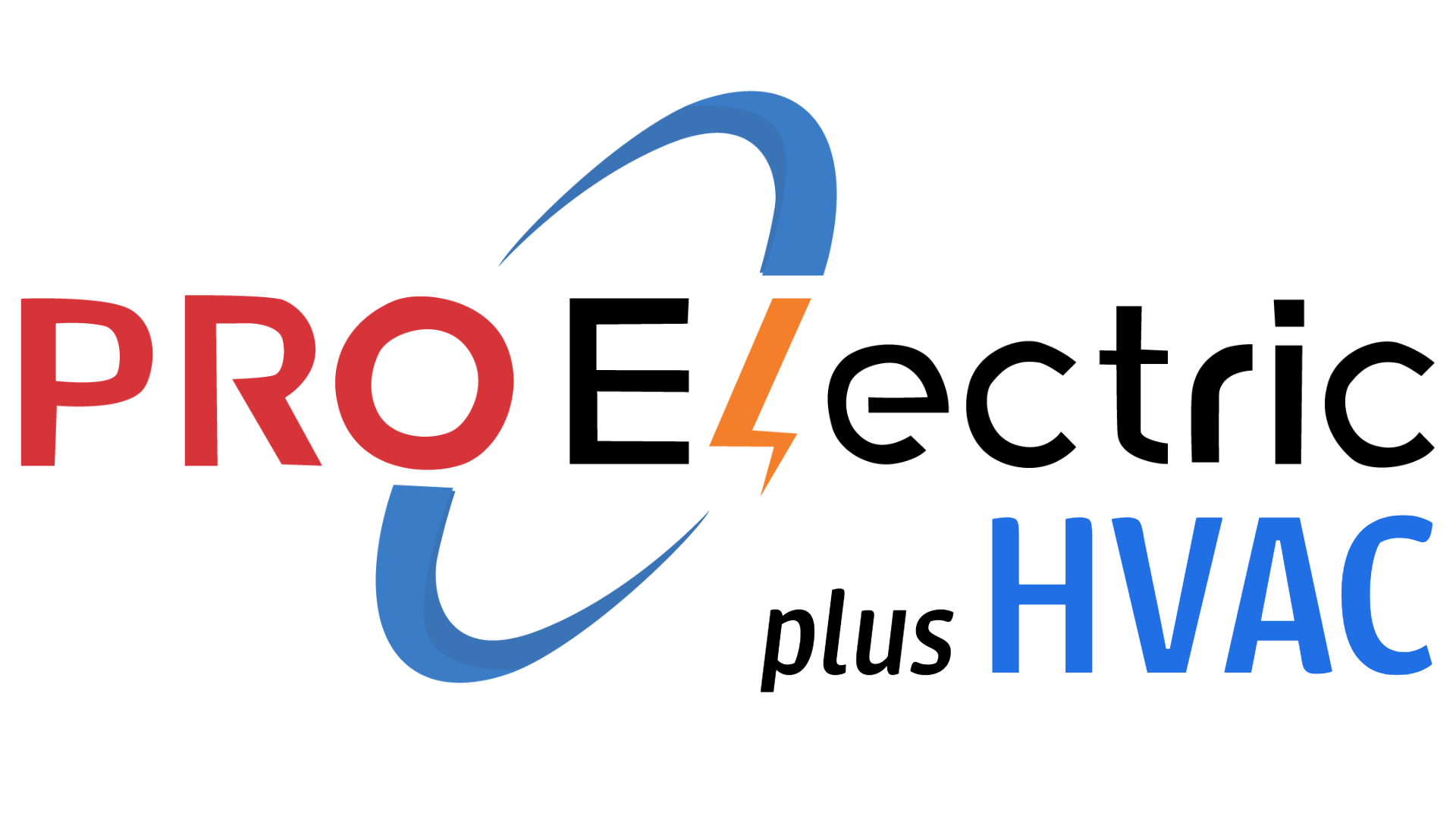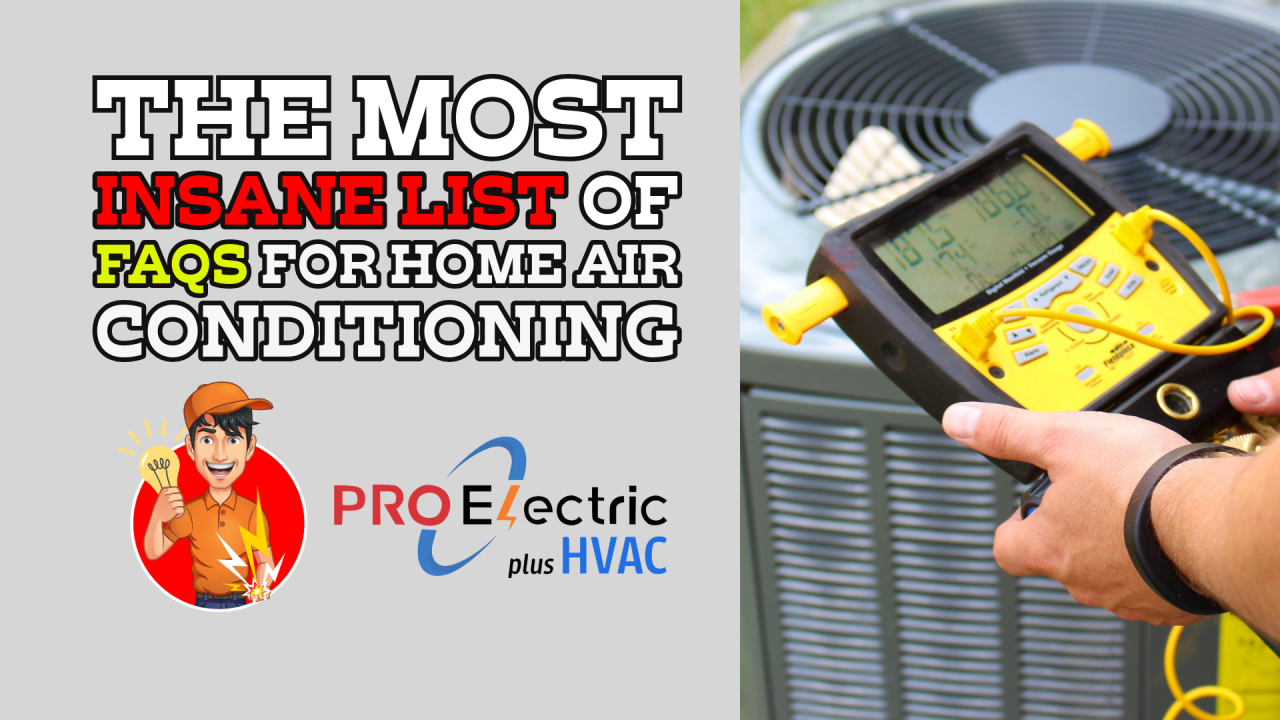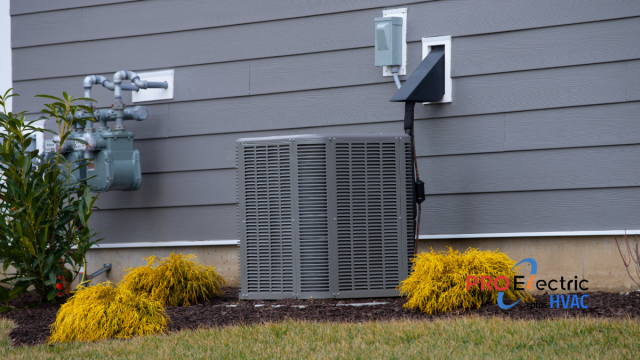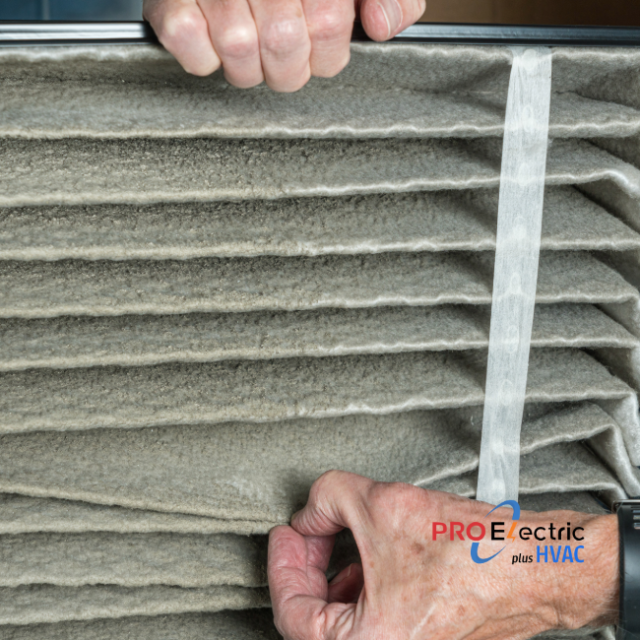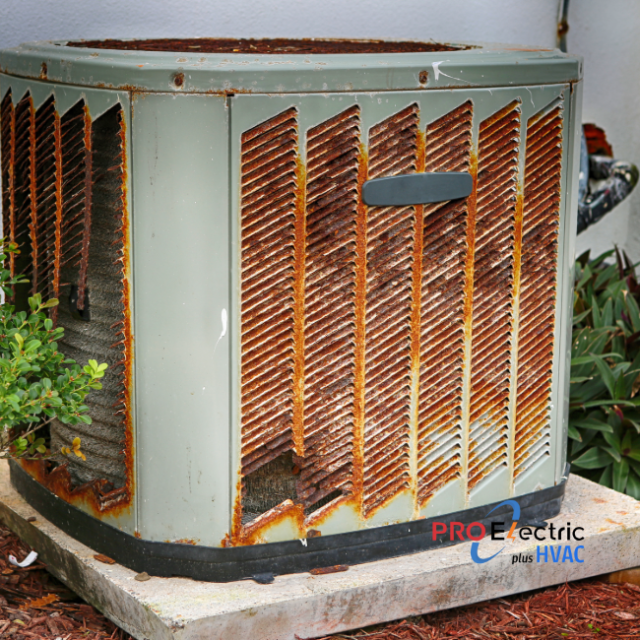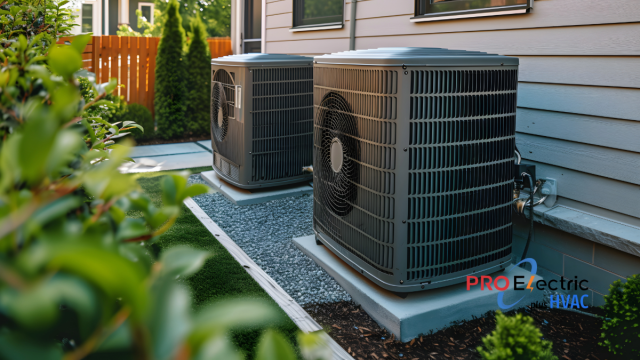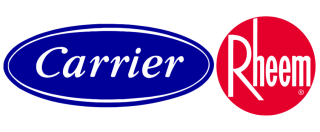As a seasoned HVAC technician, I provide authoritative, straightforward answers to commonly asked questions about AC installation, repair, maintenance, replacement, and troubleshooting.
AC Installation FAQs
How can I select the correct size air conditioner for my house?
The right size AC is essential for performance and power savings.
We perform a detailed load calculation based on your house’s square footage, window sizes, insulation quality, occupant count, and regional climate.
An AC that’s too small will not cool your space correctly, and an oversized unit can cause regular cycling, increased usage, and increased energy costs.
It is consulting with a professional guarantee a system that suits your needs.
What are the factors to think about when purchasing an AC unit?
Consider these when selecting an AC unit:
- Cooling Capacity (BTU): Ensure the unit can handle your house’s cooling load.
- Energy Efficiency (SEER Rating): Higher SEER ratings imply lower energy costs.
- Type of System: Central, ductless, window units, etc., depending on your house layout.
- Brand & Reliability: Good brands generally have much better warranties and longevity.
- Installation Requirements: Some systems call for more complicated installations.
- Budget: Balance upfront costs along with long-term energy savings.
Do we put in a central AC or individual room units?
The very best choice depends on your home’s design and cooling requirements.
Central AC systems can cool a whole house in one sweep and are more energy-efficient for larger areas.
Individual room units, such as ductless mini-splits or windows, are flexible and less expensive if you need to cool only a few rooms.
Consider existing ductwork, energy efficiency, and your cooling preferences.
Just how long does AC installation generally take?
An average central AC installation takes one to three days, depending on the job complexity, changes to existing ductwork, and system type being installed.
Good selection and planning of an HVAC contractor will ensure a timely installation.
What permits are necessary to put in new air conditioning?
Permit requirements differ by location but typically include electrical and mechanical permits.
Your HVAC contractor generally handles getting the permits, so the installation fulfills local building codes and regulations.
For regional requirements, talk to your local building department.
Should I install my AC unit or hire an expert?
Installing an AC unit yourself is generally not recommended if you lack training and experience.
HVAC systems require precise installation to satisfy safety, efficiency, and local codes.
Professional installation avoids refrigerant leaks, electrical problems, and improper sizing.
What’s the average cost of installing AC?
AC installation cost depends upon system size, type, brand and installation complexity. Central AC installation costs typically USD 3,000 to USD 7,000 or more, and ductless units USD 2,000 to USD 5,000 a device. Getting multiple quotes from various HVAC contractors will help you decide what your situation costs.
How can I find a great HVAC contractor to install it?
To look for an HVAC contractor:
- See Licenses & Certifications: Verify they are certified and licensed in your area.
- Read Reviews and Ask References: Seek out positive comments from past customers.
- Verify Insurance: They ought to carry liability and worker’s comp.
- Get Multiple Quotes: Compare pricing and services from several contractors.
- Ask About Experience: Pick an experienced contractor for AC installations.
- Check Warranties: Be sure they provide warranties on equipment and labor.
What makes split air conditioners distinct from window air conditioners?
- Split air conditioners have two units: An interior unit and an outdoor condenser connected by refrigerant lines. They’re quieter, more efficient, and suitable for cooling many rooms or larger areas.
- Window air conditioners: These are single units installed in a window or wall opening to cool various rooms in a house. Split systems are generally more aesthetic and perform much better, while window units are easier and cheaper to install for smaller spaces.
How does the SEER rating impact AC performance and installation costs?
SEER measures the cooling Efficiency of an ac unit. Higher SEER ratings suggest more efficient units and lower energy bills.
Nevertheless, choosing a better-rated SEER system has higher upfront costs.
You should choose a suitable unit while balancing the original investment with long-term energy savings.
Moreover, most areas offer energy rebates and incentives to cover the price of high-SEER units.
AC Maintenance FAQs
How frequently do I service my air conditioning system?
AC performance and life expectancy need regular upkeep.
More than one time a year, have a specialized HVAC tech carry out maintenance, ideally in the spring before the cooling season starts.
Homeowners should also perform essential maintenance duties like changing filters every one to three months.
What exactly are some essential maintenance tasks for an AC unit?
Basic AC maintenance tasks include:
- Cleaning/Replacing Filters: Allows airflow & efficiency.
- Inspecting & Cleaning Coils: Keeps dirt buildup from decreasing efficiency.
- Checking Refrigerant Levels: Checks that the system is operating correctly.
- Inspecting Electrical Connections: Stops electrical problems and also keeps you safe.
- Lubricating Moving Parts: Reducing friction and wear on components.
- Checking Thermostat Settings: Provides precise temperature control.
- Debris Clearing Around the Outdoor Unit: Allows airflow and avoids blockages.
How can I clean or even replace my AC filter?
The process of cleaning or even replacing your AC filter is simple:
- Turn Off the AC unit: Unplug the power to remain safe.
- Locate the Filter: Typically in the return air duct or blower compartment.
- Remove the Filter: Take out the old filter gently.
- Replace: Install a new filter of the same size and style.
Maintaining your filter enhances the air quality, system efficiency, and the life of your AC unit.
Why must my air conditioner have regular maintenance?
Regular maintenance is crucial because:
- Increases Efficiency: Keeps the system running optimally with decreased energy usage.
- Prevents Breakdowns: Detects & fixes issues before they turn into serious problems.
- Extends Lifespan: With proper upkeep, your ac unit can last several years longer.
- Keeps Air Quality Good: Prevents mold & dust buildup.
- Saves Money: Reduces repair costs and lowers electric bills in the long run.
Could regular maintenance prolong the life span of my AC system?
Regular maintenance fixes minor issues before they become serious, reduces wear and tear on components, and helps your AC work effectively.
A correctly installed AC system will easily last 15-20 years with appropriate maintenance.
What signs my AC must be maintained?
Signs your AC needs immediate maintenance:
- Cooling Performance Was Reduced: Your home isn’t cooling as effectively.
- More Energy Bills: Noticeable rise in energy costs without increased usage.
- Strange Noises: Unusual sounds like rattling, grinding, or squealing could happen.
- Odors Not Pleasant: Musty or even burning scents coming from the unit.
- Cycling frequently: The AC goes on and off more frequently than usual.
- Leaks of Water: Visible water around the unit or leaking from vents.
- Thermostat Problems: Inconsistent or incorrect temperature readings.
How can I clean the condenser coils on an outside device?
Cleaning the condenser coils:
- Turn Off power: Be sure the unit is off at the breaker.
- Remove Debris: Clear any leaves, grime, and debris around the unit.
- Use a Coil Cleaner: Follow the manufacturer’s directions for a no-rinse coil cleaner.
- Brush Coils Gently: Remove stubborn dirt with a gentle brush.
- Rinse if Necessary: Some cleaners need a low-setting rinse with a garden hose.
- Let it Dry: Be sure the coils are dried out before resetting the power.
Cleaning the condenser coils routinely maintains heat exchange and extends your AC system’s life span.
When should I schedule yearly professional maintenance on my AC?
Yes, schedule annual professional maintenance.
A technician can inspect and clean critical elements, check refrigerant levels, and identify possible issues early.
This proactive approach ensures your AC runs smoothly, prevents unforeseen breakdowns, and extends the system’s life.
Exactly what maintenance should a central AC system require?
Maintenance tasks on central AC systems include:
-
Regular Filter Replacement or Cleaning
-
Coil Cleaning (Evaporator & Condenser)
-
Checking Refrigerant Levels & Leaks
-
Inspecting & Cleaning Ductwork
-
Lubrication of Moving Parts
-
Inspecting Electrical Connections & Components
-
System Controls Testing and Thermostat Calibration
-
Clearing Debris Around the Outdoor Unit
How can I keep mold and mildew away from my air conditioning system?
To avoid mold and mildew:
- Maintain Proper Humidity Levels: Keep indoor humidity below 60%.
- Change or Clean Filters Frequently: Prevents moisture accumulation and mold growth.
- Ensure Proper Drainage: Clear the condensate drain duct to avoid water accumulation.
- Evaporator Coils Should Be Clean: Prevents moisture from getting on the coils.
- Use a UV Light: Mold spores in the system could be killed using UV lamps.
- Schedule Regular Maintenance: Mold issues could be found early with professional inspections.
AC Repair FAQs
What exactly are the most common AC problems homeowners encounter?
Common ac problems include:
- Cooling is insufficient: The system doesn’t cool correctly.
- AC Is Not Turning On: The unit doesn’t start.
- Leaks in Refrigerant: Low refrigerant levels restrict cooling capability.
- Frozen Evaporator Coils: Poor cooling & airflow.
- Strange Noises: Like rattling, squealing, or perhaps grinding.
- Leaks of Water: From the condensate drain/unit.
- Thermostat Problems: Inaccurate temperature control.
- Electrical Problems: Faulty wiring or circuit breakers ripping.
- Filters are Dirty or Clogged: Reduces airflow and efficiency.
Why does my air conditioning not cool?
Poor cooling could result from many things:
- Filters are Dirty or Clogged: Restricts airflow, lowering cooling efficiency.
- Low Refrigerant Levels: This causes poor heat exchange.
- Dirty Condenser Coils: Degrades the unit’s ability to lose heat.
- Compressor Faulty: Important for refrigerant circulation.
- Blocked or Leaky Ductwork: Stops cool air flow from reaching rooms.
- Improperly Sized Unit: An undersized AC struggles to cool the space.
- Thermostat Problems: Either incorrect settings or defective thermostat.
What makes an AC unit freeze up?
AC freezing happens when the system is imbalanced, for example:
- Low Refrigerant Levels: Makes the evaporator coils way too hot.
- Restricted Airflow: Dirty filters, blocked ducts or defective fans.
- Dirty Evaporator Coils: Bring down heat exchange efficiency, and coils freeze.
- Thermostat Problems: Incorrect settings might cause excessive cooling.
- Compressor Faulty: Refrigerant blood circulation is impaired by this.
Whenever an AC freezes up, turn off the unit and call a pro to diagnose and repair the issue.
Why does my AC blow warm air rather than cold?
ACs might blow warm air because:
- Low Refrigerant Levels: Reduces the cooling capability of the system.
- Dirty Condenser Coils: Avoids heat dissipation effectively.
- Compressor Faulty: Hinder refrigerant blood circulation.
- Thermostat Problems: Either incorrect settings or defective thermostat.
- Electrical Problems: Defective wiring or component impacting performance.
- Blocked Airflow: Dirty filters or obstructed vents prevent cool air from spreading.
An expert HVAC specialist can identify the leading cause and make the repairs required.
How can I repair an AC unit that isn’t switching on?
If your AC isn’t switching on:
- Check the Thermostat: Make sure it’s turned to cooling and set lower than the present room temperature.
- Inspect the Power Supply: Check the breaker and ensure the unit receives power.
- Look at the Outdoor Unit: Be sure it isn’t blocked, and the disconnect switch is ON.
- Look for Blown Fuses: Replace blown fuses in the system.
- Test Thermostat Batteries: Replace if needed.
- Look for Error Codes: Some units show error codes for particular issues.
If none helps, you should contact an HVAC professional for further diagnosis and maintenance.
What if my AC is making strange sounds?
Strange noises out of your AC might indicate a few issues:
- Rattling: Parts are loose, or debris is in the unit.
- Squealing or Screeching: Worn or slipping belts or issues with the blower motor.
- Grinding: Issues with fan engine or bearings.
- Buzzing: Electrical issues or even failing components.
If you hear unusual noises, turn off the AC and check the unit for apparent issues.
Call a specialized HVAC technician to fix the issue for safety and correct assessment.
Why does my air conditioner leak water?
Water leaks could be brought on by:
- Condensate Drain Line Clogged: Blocks drainage, making water back up and leak.
- Damaged/Rusted Drain Pan: Can not collect and channel condensate well.
- Frozen Evaporator Coils: Melted ice may cause excess water.
- Improper Installation: Leaks can happen with misaligned components.
- High Humidity Levels: Too much moisture can overtake the drainage system.
Clean the condensate drain line and examine the drain pan if your AC is leaking.
If the issue continues, call an HVAC professional to examine and repair it.
How do I troubleshoot an AC that blows air but is not cool?
If your AC blows air but isn’t cooling:
- Check Thermostat Settings: Be sure it’s turned to cooling and the temperature is right.
- Replace or Clean the Air Filter: A dirty filter can impede airflow and cooling.
- Check the Outdoor Unit: Clear debris and clean condenser coils.
- Look for Blocked Vents: Check that all supply and return vents are unobstructed and open.
- Verify the Circuit Breaker: Verify that the AC unit is getting power.
Look for ice on the evaporator coils, which indicates refrigerant or airflow problems.
If none of these actions help, call a specialist technician to identify and repair the issue.
What makes an AC compressor fail?
AC compressor failure could be a result of:
- Lack of Maintenance: Dirt and debris may destroy internal components.
- Refrigerant Problems: Overcharging, undercharging or leakages might stress the compressor.
- Electrical Problems: Voltage spikes or bad wiring can kill the compressor.
- Age & Wear: Components can fail in the long run.
- Not overheating: The compressor could overheat because of lousy airflow or obstructed condensers.
- Mechanical Damage: Compressor failure could result from foreign objects or internal faults.
A failed compressor frequently requires professional repair or replacement to restore AC functionality.
How can I reset an air conditioner if it is not working?
To reset your AC:
- Turn Off the Unit: Shut down the thermostat & outdoor devices.
- Check the Circuit Breaker: Reset any tripped breakers.
- Wait a Few Minutes. Allow the system to reset.
- Turn the unit back on: Switch the thermostat to cool and set the temperature.
- Check for Power: Be sure the unit powers up and starts working.
If the AC still does not work after resetting, call an HVAC professional to identify and repair it.
AC Replacement FAQs
Exactly when should I replace my old air conditioning?
Think about replacing your old AC if:
- Age of Unit: AC units run for about 15 to 20 years. If your unit is approaching or past this age, replacement could be less expensive than repairs.
- Frequent Repairs: If your AC needs frequent repairs, they add up, and replacement is better.
- Rising Energy Bills: Older units are less effective and have increased electricity costs.
- Consistent Cooling: Having difficulties maintaining a constant temperature inside your house.
- Environmental Regulations: Older units might have refrigerants phased out because of environmental issues.
- Noise Levels: More recent units run quietly.
What signs do I need to replace my AC unit?
Signs your AC is time to replace include:
- Age of Unit: Nearing or exceeding fifteen years.
- More Energy Bills: Without any apparent reason, indicating inefficiency.
- Frequent Breakdowns: Regular repairs suggest the unit is wearing out.
- Bad Cooling Performance: Failure to maintain desired temperatures.
- Leaks in Refrigerant: Persistent leaks can be expensive to fix.
- Strange Noises: Excessive or odd sounds.
- Environment Concerns: Older refrigerants are getting phased out.
- Rising Repair Costs: Repairs cost more than replacements.
Why upgrade to a brand-new AC system?
Benefits of getting a brand new AC system:
- Energy Efficiency Improvement: Older units consume less energy and have reduced electric bills.
- Enhanced Cooling Performance: Greater accuracy of temperature control and quicker cooling.
- Advanced Features: Intelligent thermostats, variable speed motors, and better humidity control.
- Environmental Benefits: New systems use less global warming refrigerants.
- More Comfort: More even and reliable cooling all through your house.
- Lower Maintenance Costs: New systems require fewer repairs and typically carry warranties.
Can I replace particular parts of my AC rather than the entire device?
Occasionally, only replacing specific parts can extend the life span of your AC.
Common replaceable parts include:
- Filters: Simple to replace frequently and relatively affordable.
- Capacitors/Contactors: Essential for electric components.
- Fans & Motors: If they malfunction, a replacement could restore functionality.
- Thermostats: Updating to an intelligent thermostat might offer better management and efficiency.
- Coils: Evaporator and condenser coils could be cleaned or replaced.
But if your unit is old or several components are failing, it might be cheaper to replace the whole system.
What is the best way to pick the correct replacement AC for my home?
How to choose the correct replacement AC:
- Assess Your Needs: Determine what your house size and cooling requirements are.
- Energy Efficiency: Look for units that have better SEER ratings.
- Type of System: Pick central, ductless, or maybe another kind according to your house’s layout.
- Brand & Reliability: Go for durable, supportive brands.
- Budget: Balance upfront expenses with long-term energy savings.
- Features: Consider variable speed, intelligent controls, and enhanced filtration.
- Professional Consultation: Seek an HVAC professional to recommend the proper system for your requirements and appropriate installation and sizing.
What financing can be obtained for AC replacement?
Options for financing AC replacement consist of:
- Manufacturer Financing: Some manufacturers provide low or no-interest financing plans.
- HVAC Contractor Financing: Some contractors provide in-house financing or partner with financial institutions.
- Home Equity Loans/Lines of Credit: Leveraging your home equity can get you good terms.
- Credit Cards: Short-term financing is available, although rates could be high.
- Government Incentive: Seek rebates, tax credits, or incentives for energy-efficient upgrades.
Compare choices to find the cheapest monthly payment and best financing for your budget.
How can a new AC unit save energy?
New AC units have the latest technology and enhanced designs for energy efficiency.
Features include:
- SEER Ratings Higher: Cooling with decreased energy usage.
- Advance Compressors: Variable-speed or even inverter-driven compressors match cooling output to demand.
- Better Insulation: Better insulation decreases energy loss.
- Smart Controls: Programmable thermostats and smart systems tune operation according to usage patterns.
- Eco-Friendly Refrigerants: Energy use is decreased with more efficient and environment-friendly refrigerants.
These enhancements result in reduced electric bills and a lower environmental footprint.
What incentives or rebates are provided for replacing my air conditioning?
Some rebates and incentives for AC replacement are:
- Federal Tax Credits: Readily available for higher efficiency HVAC units.
- State & Local Rebates: Several states and municipalities provide energy-efficient upgrades as rebates.
- Utility Company Rebates: Some utilities reward customers for installing energy-efficient systems.
- Manufacturer Rebates: Seek out promotional rebates or discounts at the manufacturer.
- Incentives for Financing: Contractor or manufacturer financing at low or zero interest.
Check out available incentives and save with your HVAC contractor or local government sites.
Just how long will a brand-new air conditioning system generally last?
An appropriately maintained air conditioning system lasts fifteen to twenty years.
The lifespan may depend upon usage, maintenance schedules, installation quality, and system components.
Regular maintenance extends the life of your AC unit, but neglecting upkeep might cause premature failure.
FAQs for AC Issues & Troubleshooting
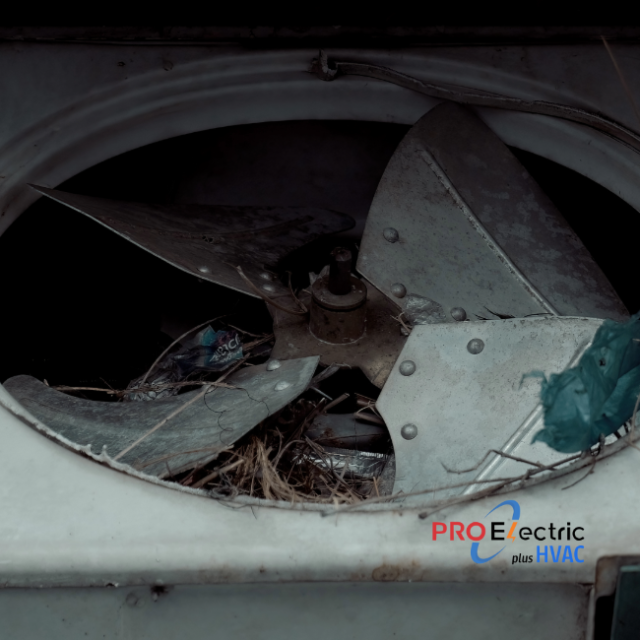
Why does my AC rattle?
Rattling noises out of your AC might be:
- Loose Parts: Components like the fan blades, motor mounts, or panels can become loose with time.
- Debris in the Unit: Foreign objects like leaves or dirt might enter the unit and make noise.
- Ductwork Problems: Loose or vibrating ducts might carry rattling sounds.
To prevent rattling, shut down the unit and look for missing parts or trash.
Tightening screws and clearing debris could resolve the issue.
If the noise continues, have an HVAC technician examine and secure internal parts.
Just what makes my air conditioner buzz or hum?
Buzzing or even humming noises could be created by:
- Electrical Problems: The buzzing sounds could be from loose or faulty electrical connections.
- Fan Motors Faulty: Motor bearings or some other components might be failing.
- Transformer Issues: Issues with the unit’s transformer cause humming noises.
- Refrigerant Flow: Vibrations of refrigerant traveling throughout the system.
If you keep hearing buzzing and humming, switch off the AC and have a professional technician check the system for possible electrical hazards or component damage.
Precisely, why does my AC unit grind?
Grinding sounds could mean severe issues, like:
- Motor Bearings: Bearings in the blower motor or compressor are worn or damaged.
- Fan Issues: Foreign items or debris caught in the fan’s blades.
- Compressor Problems: Internal damage to the compressor.
Grinding noises suggest possible component failure.
Switch off the unit and call an HVAC technician quickly to avoid additional harm and prevent harmful functioning.
How do I stop my AC from squealing?
Squealing noises might be brought on by:
Worn Belts: If your AC utilizes belts, they might be worn or loose.
Fan Motor Problems: Bearings or any other motor components might be failing.
Debris in the Unit: Moving objects could cause squealing.
To stop squealing, look for loose or worn belts and replace them if necessary.
Also, check the fan motor for debris and wear. If the issue persists, call a qualified technician to identify and resolve the issue.
Cooling Problems: why does my air conditioning never become cold enough?
Lack of cooling could arise for many reasons:
- Filters are Dirty or Clogged: Restricts airflow, lowering cooling efficiency.
- Low Refrigerant Levels: Poor heat exchange from insufficient refrigerant.
- Dirty Condenser Coils: Reduce heat dissipation and influence cooling performance.
- Compressor Faulty: Important for refrigerant blood circulation.
- Blocked or Leaky Ductwork: Stops cool air from reaching all places.
- Thermostat Problems: Mistaken settings or faulty thermostat.
An expert HVAC technician can identify the issue and make essential repairs to repair your AC’s cooling performance.
What causes inconsistent cooling in my house?
Inconsistent cooling could happen because of:
- Ductwork Uneven: Poorly designed or leaky ducts could cause uneven air distribution.
- Zoning Issues: Bad dampers could cause temperature imbalances in a zoning system.
- Blocked Vents: Some rooms have blocked vents, which prevent airflow.
- Placement of Thermostat: A thermostat in a hot or drafty place will give inaccurate readings.
- Not Enough Insulation: Poor insulation lets cool air go out and warm air enter.
- Undersized A/C Unit: Struggles to cool more extensive or several areas efficiently.
Ductwork integrity, insulation, and ensuring the AC system is sized and functioning can offer more consistent cooling.
How can I fix an AC that cools some rooms but not others?
If your AC cools some rooms but not other rooms:
- Vents to check: Be sure all supply and return vents are unblocked and open.
- Balance the System: Redirect airflow to under-cooled areas by modifying dampers.
- Ductwork Inspection: Look for leakages or blockages that prevent airflow to particular rooms.
- Insulation Evaluation: Improve insulation in rooms that aren’t cooling.
- Installation of Zoning Systems: Allow various home areas to be cooled individually.
- Verification of Proper Sizing: Ensure your AC unit is adequately sized for your house’s layout and cooling requirements.
A professional HVAC technician may assess and implement solutions to balance airflow and enhance cooling distribution.
Issues with Condenser
Why does my condenser unit not work?
A non-working condenser unit could be caused by:
- Power Problems: Tripped circuit breakers/blown fuses.
- Thermostat Problems: Mistaken settings or faulty thermostat.
- Dirty Condenser Coils: Prevent efficient heat dissipation.
- Compressor Faulty: Important for refrigerant blood circulation.
- Fan Motor Problems: Stops airflow via the condenser.
- Leaks in Refrigerant: Low levels affect condenser operation.
- Electrical Problems: Defective wiring or parts in the condenser unit.
Look at the power cord for visible debris or damage and ensure the thermostat is functioning.
Call a technician for repair for more complicated issues, like compressor or refrigerant problems.
Precisely why might a condenser overheat?
The causes of condenser overheating are:
- Dirty Condenser Coils: Bring down heat dissipation efficiency.
- Low Refrigerant Levels: Make the system work harder and generate more heat.
- Airflow Problems: Airflow restrictions might be obstructions across the condenser or even a failing fan
- Compressor Faulty: Refrigerant circulates badly.
- Electrical Problems: Overloading or faulty components create heat.
- High Ambient Temperatures: Hot weather can damage the condenser.
Frequent upkeep, such as cleaning coils and checking airflow, can prevent condenser overheating.
Call a technician to diagnose and repair the underlying issue if overheating continues.
How do I troubleshoot a faulty condenser in my AC?
Troubleshooting a defective condenser:
- Check Power Supply: Make sure the condenser is receiving power. When needed, reset breakers.
- Inspect for Debris: Clear all debris and obstructions around the unit.
- Clean Condenser Coils: Remove dirt and grime that slow heat loss.
- Examine the Fan: Check out if the fan is operating and not blocked.
- Check Refrigerant Levels: Low refrigerant may impact condenser performance.
- Listen for Compressor Operation: A non-working compressor may be failing.
- Look for Visible Damage: Look for physical damage or leakages.
If none of these actions help, contact our HVAC professional to examine and fix the condenser.
AC Electrical Problems
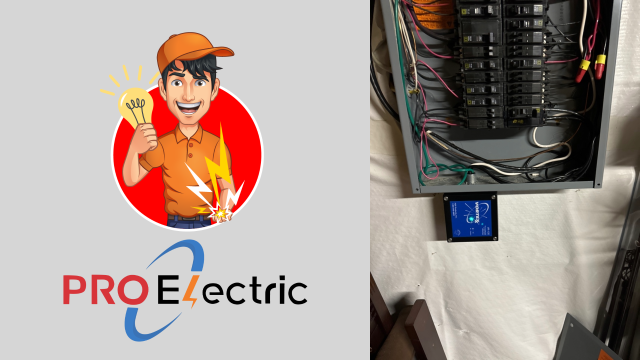
Why does my AC not turn on when plugged in?
Potential reasons include:
- Circuit Breaker Tripped: Reset the breaker to bring back power.
- Blown Fuse: Replace any blown fuses related to the AC unit.
- Power Cord Faulty: Examine for damage and replace it if needed.
- Thermostat Problems: Be sure it’s set correctly and functioning.
- Capacitor or Relay Faulty: This can prevent the unit from starting up.
- Disconnected/Damaged Wiring: Needs professional repair.
Call an HVAC professional to examine and repair electrical components safely if checks aren’t enough.
What if my air conditioning blows circuit breakers?
If your AC is ripping circuit breakers:
- Reset the Breaker: Switch it back on if it trips once more.
- Check for Overloading: Check the circuit for overloaded appliances.
- Inspect the AC Unit: Look for electrical issues or damage to the surface area.
- Check the Wiring: Faulty or damaged wiring may create short circuits.
- Check the Capacitor: A failing capacitor may draw too much current.
Avoid repeatedly resetting the breaker, as this may cause a fire.
Get an HVAC specialist to identify and restore the electrical issue at the cause.
Other Common AC Problems
Precisely, why does my AC unit short cycle?
Short cycling happens when the AC switches on and off often.
- Oversized AC Unit: Cools the space too rapidly (frequent shutdowns).
- Placement of Thermostat: Located in a drafty area or near heat sources, leading to incorrect readings.
- Low Refrigerant Levels: Causes the system to get too hot and fail too early.
- Dirty Filters or Coils: Limit airflow and make the unit cycle off.
- Electrical Problems: Faulty wiring or components could stop operation.
Short cycling might reduce system efficiency and increase wear and tear. A professional technician should diagnose and treat the issue.
What makes my air conditioner smell terrible?
Foul odors from the AC might be:
- Mold & Mildew: Growth on evaporator coils or in ductwork.
- Dirty Filters: The musty smells could be from accumulated dirt and debris.
- Drain Line Clogged: Can quickly produce stagnant water and mold growth.
- Burning Smells: Indicate electrical problems or overheating elements.
- New Unit Smell: A little odor when a brand new AC is installed that should fade away as time passes.
Regular maintenance, such as cleaning filters and coils, can help avoid unpleasant odors. If odors persist, have a professional technician locate and eliminate the source.
How do I make my air conditioning more efficient?
For AC efficiency:
- Regular Maintenance: Schedule yearly professional tune-ups.
- Change Filters Often: Ensure clean airflow.
- Seal Ductwork: Stop leakages and maintain airflow.
- Upgrade to a High SEER Unit: Energy consumption in more efficient systems is decreased.
- Use a Programmable Thermostat: Cooling schedules could be enhanced.
- Improve Home Insulation: Keep cool air within and warm air out.
- Clean Condenser Coils: Increase heat dissipation.
- Use Ceiling Fans: Help circulate cool air to help you turn the thermostat higher.
These measures will help enhance the functionality of your AC and save electricity costs.
Why does my AC take so long to cool my house?
Delay cooling can happen for many reasons:
- Oversized AC Unit: Cools too fast without lowering indoor humidity.
- Dirty Filters or Coils: Restricts airflow and also lowers cooling efficiency.
- Bad Insulation: Permits cool air to get out and cool air to enter.
- Thermostat Problems: Incorrect readings cause sluggish cooling.
- Blocked/Leaky Ducts: Stops cool air from reaching all places.
- High Ambient Temperatures: Extreme outdoor heat may strain the system.
A technician can assess your AC system and house and repair the slow cooling factors.
How does poor insulation impact my air conditioning system?
Poor insulation causes your AC to:
- Increased Energy Consumption: Cold air leaves, and hot air enters, making the system work harder.
- Higher Utility Bills: Inefficiency and greater energy use.
- Uneven Cooling: Several house parts might be more cool than others.
- System Lifespan Shortened: The continual overworking may cause more wear and tear.
- Increased Strain: This causes more frequent repairs and maintenance.
Improved home insulation can enhance AC efficiency and reduce energy costs and comfort.
How do outdoor temperatures affect AC performance?
Outdoor temps impact AC performance:
- Higher Temperatures: Strain the condenser unit, making it work harder to lose heat.
- Extreme Heat: This could cause overheating elements and potential system shutdowns.
- Humidity Levels: High humidity demands the AC remove far more dampness, impacting cooling capacity.
- Low Outdoor Temperatures: These are generally a concern for AC performance during cooling seasons but also affect system checks and maintenance.
Clear debris and proper outdoor unit maintenance can reduce the influence of extreme outdoor temperatures on AC performance.
Can pests or debris impact the operation of my air conditioner?
Yes, pests and debris can ruin your AC:
- Pests: Rodents or insects may occupy the unit, eat wires, or block airflow.
- Debris: Leaves, dirt, and other debris could clog the condenser coils, block fans, and reduce airflow.
- Blockages: This could result in overheating, decreased efficiency, and system problems.
Check your outdoor unit often and prevent pests from entering with screens or barriers.
Have a technician remove and secure the unit if you suspect a pest issue.
Typical AC questions and answers can help you maintain your air conditioning system.
Regular upkeep, prompt repairs, and educated choices regarding installation or replacement are essential for an energy-efficient and comfortable home environment.
If you experience persistent issues or want advice, you can always contact our licensed HVAC expert to have your system serviced.
Also, check out our FAQ list for Heating Systems.
